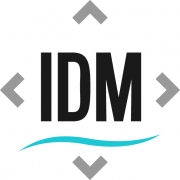Munich International Summer University: Next Europe – European Studies in Munich and Vienna 2018
Das IDM war heuer erneut Partner der Munich International Summer University (MISU). Im Rahmen der Summer University, die von der Ludwig-Maximilians-Universität München organisiert wird, kamen zwischen dem 5. und 22. August rund 80 Studierende aus China in mehreren Gruppen nach Wien und nahmen an Aktivitäten in ausgewählten Modulen (wie The Member States of the European Union, The EU in International Affairs, European Economic Affairs) teil. Neben Vorträgen zu „Austria and the CEE member states of the EU“, „A strategy for the Danube region”, „European Neighbourhood Policy and EU-Russia relations”, „Energy and Energy Security”, sowie „Transport policy” von Sebastian Schäffer, der bereits zum zehnten Mal als Lecturer des Programms tätig ist, standen auch Besuche von Internationalen Organisationen (EU, UN, Energy Community) in Wien auf dem Programm. Zudem kamen zwei Expert/innen der Organization for Security and Co-operation in Europe (OSCE) an das IDM: Florence Le Clézio (Senior Media Assistant, OSCE Secretariat Vienna) sprach mit den MISU-Teilnehmer/innen ganz allgemein über die Geschichte, Strukturen und Aufgaben der OSCE, während David Campion (Operational Support Officer, Conflict Prevention Center) Einblicke in Operationen des Krisenmanagements mit Fokus auf die Situation in der Ukraine gab. Wir möchten uns noch einmal ganz herzlich für die spannenden Vorträge und Diskussionen bedanken!
Zum Abschluss ihres Aufenthaltes präsentierten die Teilnehmer/innen ihre Ideen und Vorschläge zum Thema „The Future of European Integration“, die sie in Gruppen erarbeitet hatten. Natürlich hatten die Studierenden auch die Möglichkeit, Wien zu erkunden und die Stadt kennen zu lernen.
Alle Informationen und das komplette Programm sind zu finden unter http://www.eu-china-misu.de/en/content/EUC_Program_China
- Beginn: Freitag, 03. August 2018
- Ende: Freitag, 24. August 2018
- Ort: OeAD Wohnraumverwaltung, Wien

























